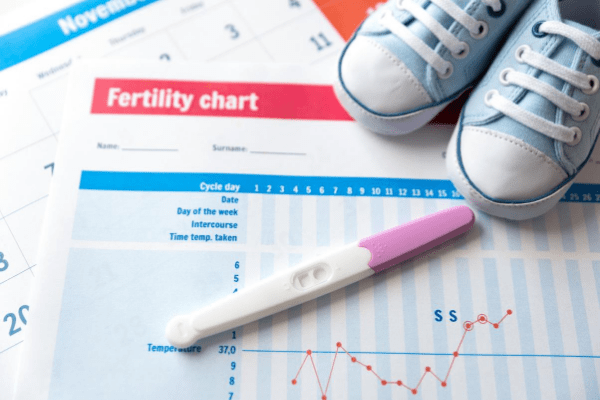This is said to happen when a couple are unable to conceive after having continuous unprotected sex without birth control. There are two types on infertility.
- Primary infertility: when a couple has not conceived after trying for at least a year without using birth control
- Secondary infertility is when they have previously gotten pregnant but are no longer able to.
Some couples are able to conceive fairly easily, some find it takes longer to conceive while some are unable to conceive at all.
A couple are said to be infertile if a pregnancy does not occur within a year of actively trying to conceive a baby
For women, it can take longer to conceive the older they are because women are most fertile in their early 20s. Even at that, there’s still a little chance of getting pregnant at the first try.
So if you’re over the age of 35 and have been trying to get pregnant for more than 6 months, or 30 and been trying for over a year, then you may want to consider speaking to your Doctor to investigate why.
So what are the main causes of infertility in women & men?
- Age
- Lifestyle habits: smoking, alcohol, being overweight, bad diet, lack of & too much exercise, mental stress.
- Polycystic Ovary Syndrome (PCOS)
- Thyroid problems
- Pelvic Inflammatory Disease (PID)
- Fibroids, Endometriosis
- Sexually transmitted diseases (STD)
- Chronic illnesses
- Sperm allergy
- Health and lifestyle
- Stress & Alcohol
- Any underlying medical conditions including the uterus/Fallopian tubes
- Drugs: NSAIDS, Chemotherapy, Radiation. Illegal drugs
In men, infertility is common due to deficiencies in the semen. The following are issues:
- Low sperm count: This is when the man ejaculates a low number of sperm. A sperm count of under 15 million is considered low.
- Low sperm mobility: The sperm cannot “swim” well enough to reach the egg on time for fertilisation.
- Abnormal sperm: The sperm may have an unusual shape, making it harder to move and fertilize an egg. Abnormal sperm can be caused from overheated testicles and genetic factors, hormonal imbalances, illnesses such as anemia or diabetes
Tests to check for infertility
In women, they include:
- Blood tests to check for a hormone called progesterone to confirm if you are ovulating
- STD tests – Chlamydia is an STI that can affect fertility and sometimes symptom-less, so a test is used to rule this out and antibiotics provided if present.
- Ultrasound scans of the pelvic organs including the uterus, Fallopian tubes and ovaries
- If any blockage is suspected, a laparoscopy (key hole surgery) would be performed to check further or a hysterosalpingom-contrast-ultrasonography to check for blockages in the Fallopian tubes.
In men, they are :
- Semen analysis -to check the health of the sperm and
- STI tests
Fertility treatments
Fertility treatment for men include:
- For premature ejaculation, medication may help improve fertility.
- If there is blockage of the ejaculatory duct, sperm can be extracted directly from the testicles and injected into an egg in the laboratory.
- A process called varicocele which is surgically removing a varicose vein in the scrotum may help.
- Retrograde ejaculation is when sperm can be taken directly from the bladder and injected into an egg in the laboratory.
- Surgery for epididymal blockage: If the epididymis is blocked, sperm may not be ejaculated properly. This can be surgically repaired.
Three main types for women are:
- Drugs – Clomid, Gonadotrophins, Metformin – to induce ovulation
- Assisted Conception -IVF, IUI, Intracytoplasmic sperm injection (ICSI)
- Surgery- Fallopian tube surgery, Laparoscopic surgery , Testicular surgery



